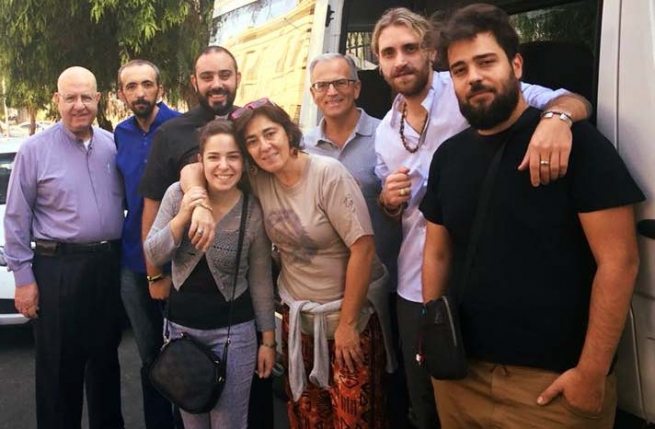The Salesian community of Damascus is made up of four priests. They run a beautiful oratory attended by 1,300 children, teenagers and young people. All Christians, with different confessions and rites. The courtyard space and the rooms where they meet is small, and so the oratory is open on alternating days for different age groups. A bus goes to pick them up at predetermined spots for obvious security reasons.
We too climbed aboard the bus. The 16-17 year-old boys climb on first. At the next stop, there are some girls of the same age. They are all beautiful and well-dressed. On the other hand, how could it not be so, since they are shall be all together on a Friday afternoon chatting in peace? How nice it is to see young people who, despite the drama their country faces, look to the future and dream.
Continuing our visit to Damascus, we hear stories of pain, destruction, and death. We cross the city, approach the peripheral districts that are in the hands of the rebels. What we see is shocking. Buildings twisted, imploded; smoke-blacked walls with holes in the walls that were once rooms, living rooms, homes of ordinary people.For a few hours, we also act as tourists in the old town and walk through an ancient and narrow street. Suddenly a powerful mortar shot explodes, so close, it paralyzes us all. After a while, a man sitting at the table of a bar makes a gesture to say, 'it's nothing' that 'we can go on'. The next day we received news that a mortar shot had fallen on that same alley, among those many small and characteristic buildings, and it had caused seven deaths. We'd been walking right there, in the same place and at the same time, but - thankfully - the day before.
More information is available on the "Don Bosco Missions" website.


